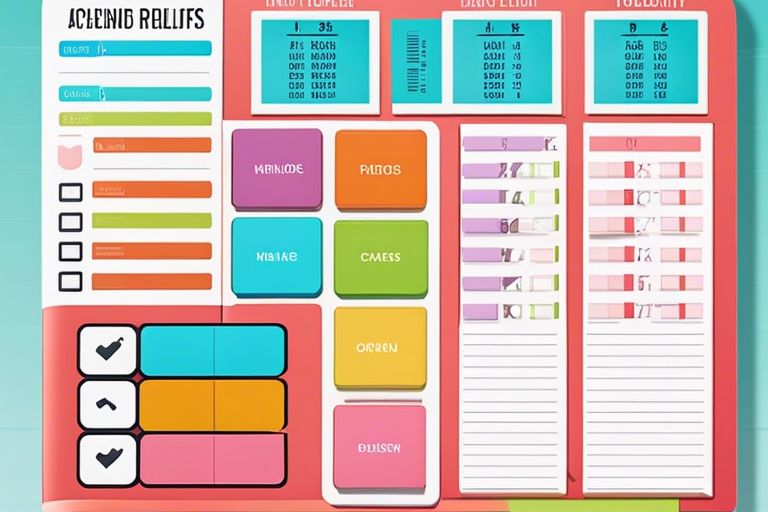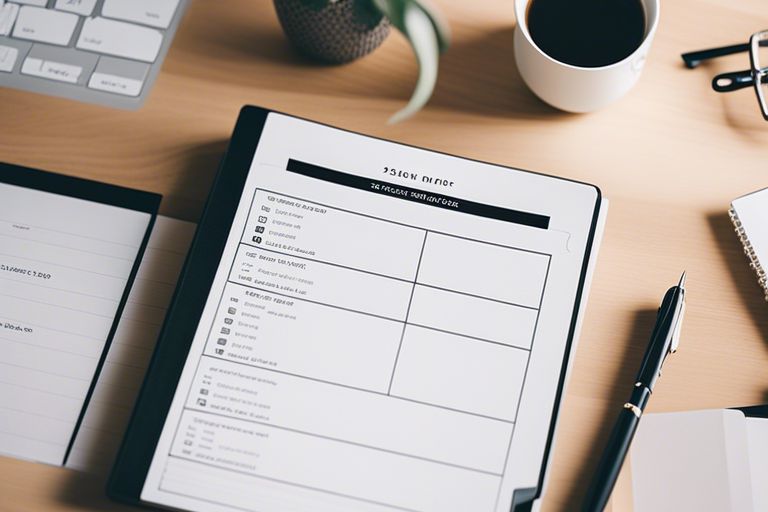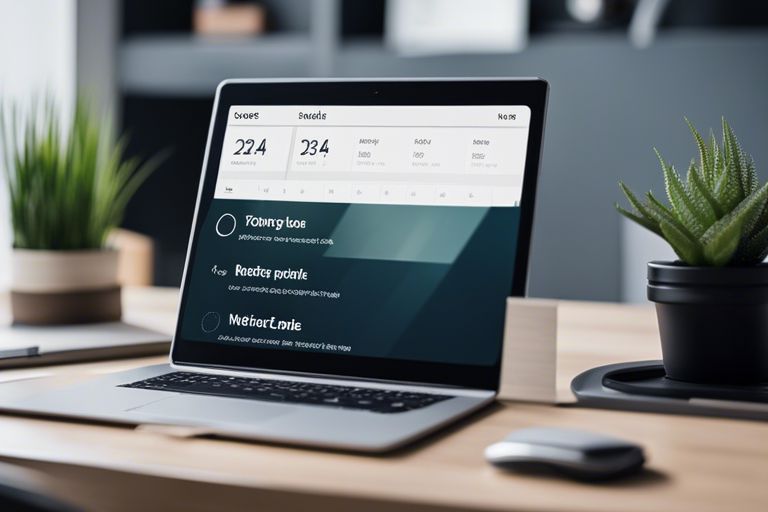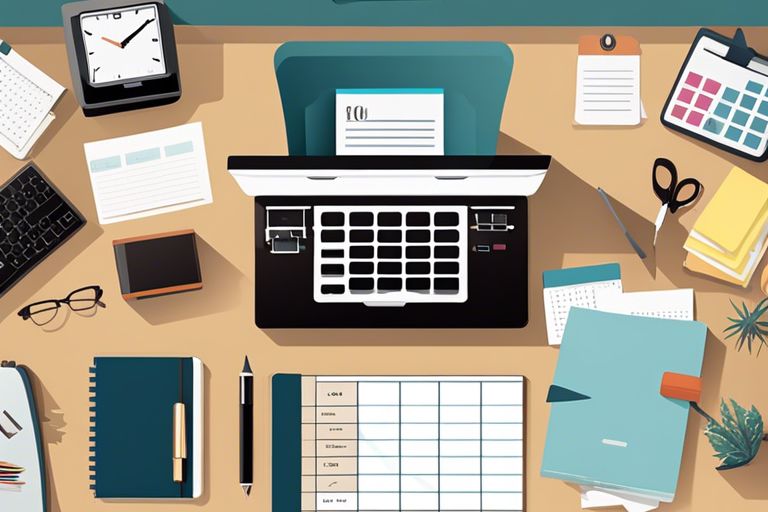Do you often find yourself struggling to complete all your daily tasks in a timely manner? If so, you’re not alone. Many individuals struggle with time management, but there are effective techniques that can help you maximize your productivity and minimize stress throughout the day. From creating to-do lists and prioritizing tasks to utilizing time blocking and setting boundaries, there are a variety of time management strategies that can significantly improve your daily productivity. In this blog post, we will explore some of the most effective time management techniques that can help you conquer your daily tasks and take control of your schedule.
Fundamental Principles of Time Management
For you to effectively manage your time and daily tasks, it is important to understand the fundamental principles of time management. These principles serve as the foundation on which all time management techniques are built. By mastering these fundamental principles, you will be better equipped to organize and prioritize your tasks, leading to increased productivity and efficiency.
Setting Priorities and Goals
One of the fundamental principles of time management is setting priorities and goals. Without clear priorities and achievable goals, it is easy to get lost in a sea of tasks, leading to procrastination and inefficiency. By setting clear and specific priorities, you can focus your energy and attention on the most important tasks. Similarly, setting realistic and achievable goals provides you with a roadmap for what needs to be accomplished, allowing you to allocate your time effectively.
The Art of Saying No
Another crucial principle of time management is learning the art of saying no. It is important to recognize that your time and energy are limited resources, and saying yes to every request will only lead to overcommitment and burnout. By politely but firmly declining tasks or opportunities that do not align with your priorities and goals, you can maintain control over your time and ensure that you are focusing on what truly matters.
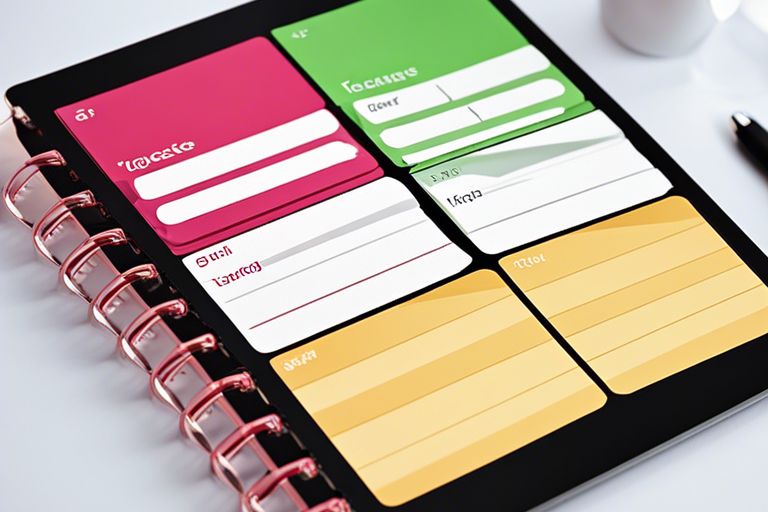
Time Management Techniques
One of the keys to effective time management is finding the right techniques that work for you. There are several popular methods that can help you better manage your time and increase your productivity. Here are some of the most effective time management techniques for daily tasks.
The Pomodoro Technique
The Pomodoro Technique is a time management method developed by Francesco Cirillo in the late 1980s. It involves breaking down your work into intervals, traditionally 25 minutes in length, separated by short breaks. This technique helps you to maintain focus and avoid burnout. By working in short bursts, you can give your full attention to the task at hand and then take a break to recharge. The Pomodoro Technique can be especially helpful for tasks that require deep concentration, such as writing, coding, or studying.
The Eisenhower Matrix
The Eisenhower Matrix, also known as the Urgent-Important Matrix, is a prioritization framework that helps you categorize your tasks based on their urgency and importance. It divides your tasks into four quadrants: important and urgent, important but not urgent, urgent but not important, and neither urgent nor important. This method helps you to identify which tasks are critical and need immediate attention, and which can be scheduled for later or delegated to someone else. By using the Eisenhower Matrix, you can focus on the tasks that truly matter and avoid getting bogged down by trivial or non-urgent matters.
Time Blocking Method
The Time Blocking Method involves scheduling specific blocks of time for different tasks or activities. By allocating dedicated time slots for your tasks, you can better manage your day and ensure that everything gets done. This technique allows you to focus on one task at a time without the distraction of other commitments. You can also use time blocking to allocate time for personal activities or relaxation, helping you to maintain a healthy work-life balance.
The Two-Minute Rule
The Two-Minute Rule is a simple time management technique that states if a task can be completed in two minutes or less, you should do it immediately. This method helps you to eliminate small, quick tasks that can otherwise pile up and create mental clutter. By tackling these tasks right away, you free up mental space and reduce the likelihood of procrastination. The Two-Minute Rule can help you to stay organized and prevent small tasks from turning into larger, more time-consuming ones.
By incorporating these time management techniques into your daily routine, you can improve your productivity, reduce stress, and make the most of your time. Experiment with different methods to find the ones that work best for you and your unique work style. Remember, effective time management is not about doing more in less time, but rather about doing the right things at the right time. Choose a technique that resonates with you and stick with it to see the positive impact on your daily tasks.
Tools and Resources for Effective Time Management
Keep track of your daily tasks and manage your time effectively with the help of various tools and resources. Whether you prefer digital applications or rely on analog systems, there are plenty of options available to help you stay organized and focused on your daily priorities.
Digital Applications and Software
When it comes to digital time management tools, there are countless options to choose from. Utilizing apps and software can help you track your tasks, set reminders, and manage your schedule with ease. Many of these tools also offer features such as time tracking, project management, and collaboration, making them ideal for individuals and teams alike. With the convenience of accessing your tasks and schedule from your mobile device or computer, digital applications and software can significantly enhance your productivity and help you stay on top of your daily responsibilities.
Analog Systems and Planners
If you prefer a more hands-on approach to time management, analog systems and planners may be the perfect solution for you. From traditional paper planners to bullet journals, there are various options available to suit different preferences. By writing down your tasks and schedule, you can enhance your focus and memory, ultimately improving your time management skills. Additionally, the act of physically crossing off completed tasks can provide a sense of accomplishment and motivation to tackle the rest of your to-do list. While digital tools offer convenience, a tangible planner can provide a sense of satisfaction and control over your daily tasks.

Integrating Techniques into Daily Life
After learning about the most effective time management techniques, it’s important to integrate them into your daily life in order to see real results. By incorporating these strategies into your routine, you can ensure that you are making the most of your time and getting the important things done.
Creating a Routine That Works
When integrating time management techniques into your daily life, creating a routine that works for you is essential. This may involve setting specific times for certain tasks, such as checking emails in the morning or scheduling time for focused work in the afternoon. By establishing a routine, you can develop a sense of structure and predictability in your day, which can help you stay on track and avoid procrastination.
Maintaining Flexibility and Adaptability
While having a routine is important, it’s also crucial to maintain flexibility and adaptability in your approach to time management. Unexpected things can arise, and it’s essential to be able to adjust your schedule as needed. By staying adaptable, you can avoid feeling overwhelmed when unexpected tasks or events come up, and you can maintain a sense of control over your time.
Conclusion: Effective Time Management Techniques for Daily Tasks
Upon reflecting on the most effective time management techniques for daily tasks, it is clear that prioritizing, setting specific goals, and breaking tasks into smaller, manageable steps are essential for maximizing your productivity. By establishing a routine and avoiding multitasking, you can maintain focus and accomplish more in a shorter period of time. Additionally, learning to say no and delegating tasks when possible can help you maintain a healthy work-life balance and reduce feelings of overwhelm. By implementing these strategies, you can take control of your time and complete your daily tasks with efficiency and ease.

